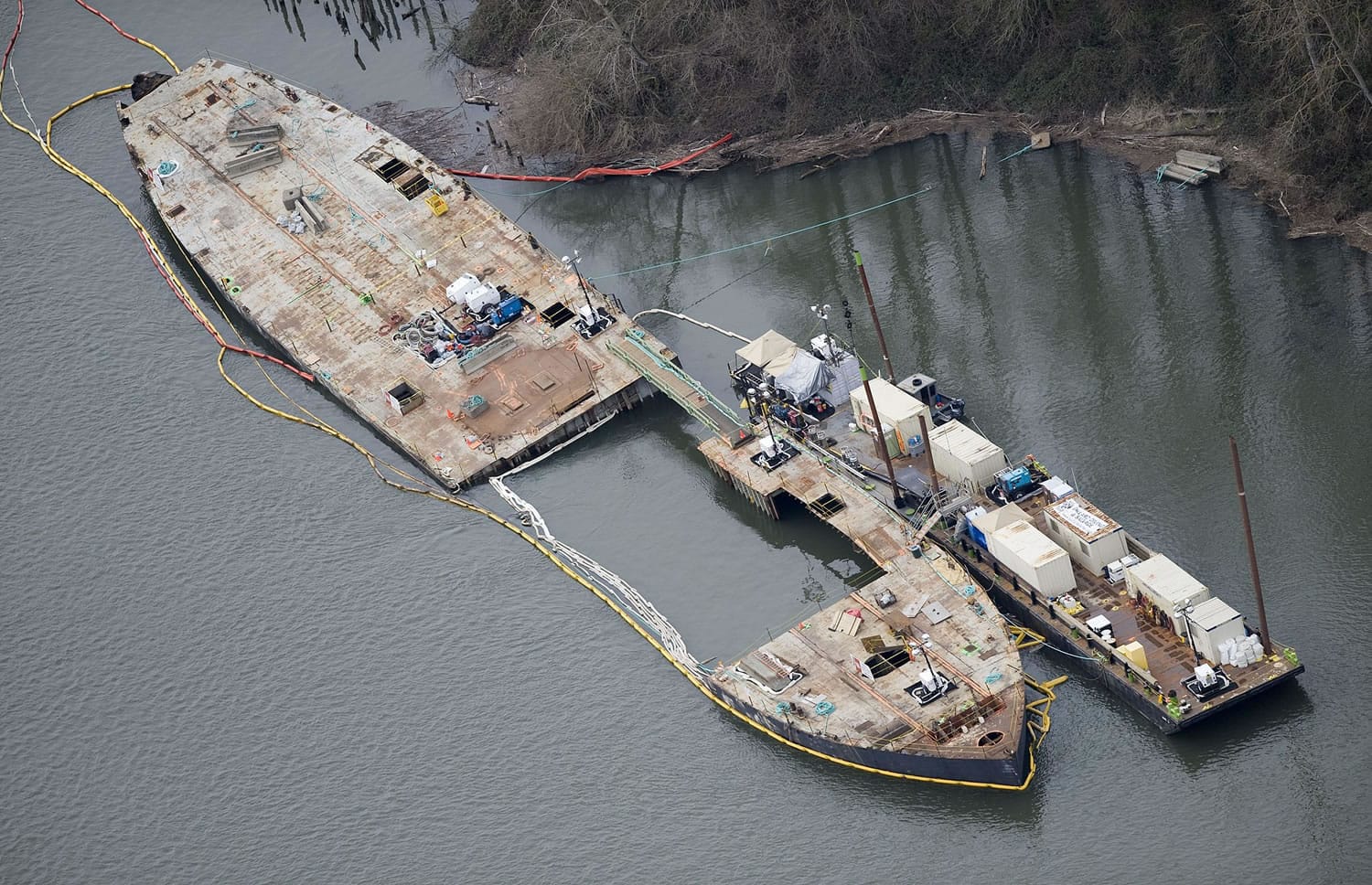DAVY CROCKETT TIMELINE
o December 2010: The 430-foot barge Davy Crockett, sitting on the Columbia River near Camas, begins breaking apart and leaking oil as owner Bret Simpson attempts to scrap it.
o January 2011: The barge buckles even more, causing additional oil and debris to leak into the river.
o Jan. 27: The U.S. Coast Guard steps in and federalizes the response to the spill.
o Feb. 16: The Coast Guard authorizes removal and destruction of the vessel.
o March 24: Unable to move the vessel out of the water, officials decide to break the barge down piece by piece where it sits.




